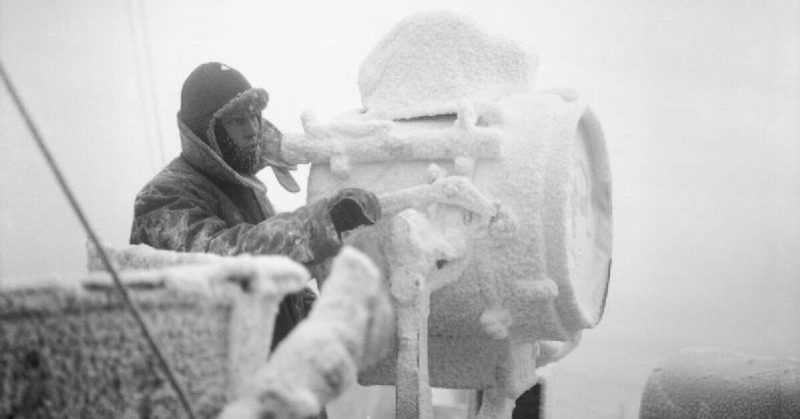On Wednesday, veterans of World War II from Britain and Russia met on the 75th anniversary of the British Arctic Convoy that delivered vital military supplies to the Red Army.
Britain’s Princess Anne has been attending events to honor all who sailed and the thousands who died to protect supply convoys sailing for the Soviet Union to deliver supplies that helped them defeat the Nazi army.
On August 31, 1941, Hitler launched a surprise attack on the Soviet Union. Two months later, the first British convoy, codenamed “Dervish”, sailed into Arkhangelsk after a 10-day journey.
The six British and one Dutch merchant ships arrived with, among other supplies, a force of Hurricane fighters to be flown by British pilots in battles with the Luftwaffe before being handed off to the Soviets.
John “Tim” Elkington was 20 years old when he traveled with the RAF’s 151 Wing in Russia. He said that his most frightening experience was crossing the Arctic Sea on the same route where eventually over 3,000 Allied men would lose their lives as German forces sank 101 merchant and naval ships.
“The most dangerous part was being on an Arctic convoy and not knowing what was going to happen with the submarines, the aircraft, and the mines,” Elkington said.
Prime Minister Winston Churchill called the convoys “the worst journey in the world.” He used them to gain an alliance with the Soviets that lasted until the end of World War II and the beginning of the Cold War.
There is some concern in Moscow that the current standoff with NATO over the Ukraine is becoming a “new Cold War”. This has fed into new interest by President Vladimir Putin to reinforce memories of cooperation between the British and the Americans in World War II.
Russia has been fostering patriotic feelings among its citizens by commemorating all citizens that sacrificed during the war. They’ve also reached out to foreign veterans who sacrificed for the Soviets.
Princess Anne said, “The scale of the loss felt by the Soviet Union during the Second World War was enormous and will not be forgotten by the United Kingdom.”
Russians who worked on the docks said that they were happy to see the British. The British told of the friendships they developed with the Soviets.
